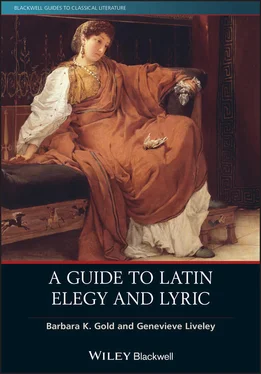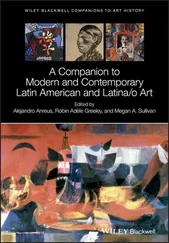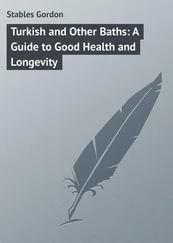Cultural, Political, and Historical Contexts for Elegy and Lyric: rei publicae
Let’s take the theme of politics first – although this aspect of the Roman world will inevitably shape the context in which the Latin lyric and elegiac poets engage with their puellae too. The period of time for which both lyric and elegy flourish in Rome is relatively short. Catullus is writing in the late Republican era of the 60s and 50s bce, largely under the First Triumvirate (a tense political alliance between Caesar, Crassus, and Pompey). Gallus is writing in the 40s bce, which see the assassination of Caesar and give rise to the Second Triumvirate, a power-share between Octavian (the future Augustus Caesar), Antony, and Lepidus. Horace, Tibullus, and Propertius are all active in the 30s and 20s under Octavian/Augustus’ early principate – that is, during the immediate aftermath of the bloody period of civil war and into the long period of relative peace and restoration led by Augustus. Indeed, it is tempting to see the emphasis on peace and recreation in lyric and elegy, alongside the explicit interest of these poets in making love not war, as a reaction of some kind against the horrors of the civil war period (see Harrison 2013: 133). Ovid joins the party a little later, and begins writing love elegy in the 20s, with the Augustan imperial regime now well established – although Ovid continues writing experimental elegy into the early decades of the new millennium and the reign of Augustus’ adopted son and successor, Tiberius. Latin lyric and elegy prosper for an interval of about seventy years then, but this interval corresponds with one of the most turbulent and transformative periods in ancient history as Rome makes the difficult transition from Republic to Monarchy and Empire.
These seismic changes in Rome’s political system inevitably make an impact upon the lyric and elegiac poetry being produced at the time. One of Catullus’ lesser-known elegiac couplets captures nicely the poet’s political stance (Catullus 93):
Nil nimium studeo, Caesar, tibi velle placere,
nec scire utrum sis albus an ater homo.
(I’m not especially eager in my desire to please you, Caesar,
or to know whether you are a white man or a black man.)
David Wray describes this as a poetic “performance” piece, an aggressive and uncompromising declaration of the kind of man that Catullus wishes to be (and to be seen as) – that is, the kind of man who is different in every possible way to Caesar (Wray 2001; see also Wray 2012 on this poem as a performance of Catullus’ “poetics of manhood”). In these two short lines we witness a scathing put-down of Rome’s leading figure, alongside a repudiation of the political life and a rejection of the military life that Caesar represents (and which were, at the time, the only two career options effectively open to men of status from “good” families). In his deliberate choice of vocabulary here, we see Catullus declaring that his own desires and interests lie elsewhere: Catullus doesn’t care what Caesar thinks or what he may do, Catullus doesn’t care about status and power, or sucking-up to powerful men – Catullus aims to please, to bring pleasure ( placere – a term which carries erotic connotations in this elegiac context) and to answer his own desires in other ways. When Catullus says that he doesn’t know if Caesar is albus an ater homo (“a white man or a black man”) he is not expressing any particular concern with skin color or heritage; saying you don’t know whether someone is black or white means you know nothing at all about them (the equivalent of saying “who is this guy anyway?”). This is a shorthand way of saying that they are complete strangers to you. And Catullus doesn’t simply state these things, he performs them. The very act of rebuffing Caesar in this highly provocative and public fashion is itself a performance of the values that Catullus believes in. Catullus doesn’t just tell us what he thinks about Caesar, he shows us. At the same time he shows us what kind of man and what kind of poet he himself wants to be.
Horace negotiates his own self-conscious performance of both poetics and masculinity very differently and in a very different sociopolitical context. Before embarking on a career in poetry, Horace was a soldier – a military tribune serving under Brutus during the civil wars of the Second Triumvirate, fighting for the allies supporting the anti-Caesarian Republican cause, and against Octavian (the future emperor Augustus) and Antony. In the civil wars Horace fought, therefore, on the losing side at the decisive and bloody battle of Philippi. In Odes 2.7 (dedicated to his friend and companion Pompey) he writes with seeming candor about his experience of this defeat. Here he confesses to cowardice in dropping his shield on the battlefield in order to save his skin – his bravery, his manliness, his virtue, broken ( fracta virtus , Odes 2.7.9–14). Yet, this “confession” too can be seen as a performance of Horace’s own “poetics of manhood”. The canonical Greek lyric poets Archilochus, Alcaeus, and possibly Anacreon too (Horace’s lyric role-models) had also written about dropping their shields on the battlefield: it is a familiar literary lyric trope. The historical “truth” of Horace’s account of his experience of Philippi is further compromised by his claim that Mercury rescued him from the enemy ranks, wrapped in a thick mist – just as epic heroes are rescued by their divine protectors in Homer’s Iliad .
This example of Horace’s poetic engagement with the turbulent politics of the period gives us a good idea of his general approach to such affairs of state. He likes to obfuscate, to hide political reality and personal opinion in a thick literary mist, so that we can never be entirely sure on which side his true political allegiances lie. This approach is clearly successful, because Horace manages to maintain a close relationship with Augustus for the rest of his long literary career (see Chapter 3). He writes under the patronage of Augustus’ political right-hand-man, Maecenas. He is commissioned to write a panegyric poem in celebration of Augustus’ ludi saeculares (literally, “the games of the century”), a long lyric piece known as the Carmen Saeculare , which was publicly performed as part of the games and in which Horace praises Augustus’ many great achievements. We find similar praise for the princeps in one of Horace’s so-called “Roman Odes” (3.6.) where he appears to speak on Augustus’ behalf in encouraging the people of Rome to mend their immoral and irreligious ways and instead to follow the examples of their ancestors (the mores maiorum ). Yet it is never clear where Horace’s true political sympathies are placed. In the “Cleopatra Ode” ( Odes 1.37), it is Antony who Horace figuratively wraps up in a cloud of mist and whisks away from the battlefield of civil war. The enemy in this poem is not a fellow Roman but an Egyptian queen, obfuscating the historical fact that Octavian/Augustus’ greatest victory was achieved in a civil war, fighting a Roman rather than a foreign enemy. And, although the poem ends with the word triumpho , the poem’s spotlight upon Cleopatra and her noble suicide subtly reminds us that she successfully escaped the humiliation of being paraded in chains in Caesar’s triple triumph of 29 bce. Horace, it seems, just like Mercury, is willing and able to rescue those who fight on the wrong side of Octavian/Augustus (on the complicated issue of Horace’s “Augustanism” see especially Lowrie 2007).
Tibullus is a contemporary and friend of Horace. He too sees military service and, again like Horace, he apparently displays a quiet reluctance to engage directly with the politics of the period. There is, in fact, a noticeable silence on the subject, and barely any direct reference to Augustus in any of Tibullus’ elegies. This is surprising, because Tibullus’ literary patron was a powerful politician – Messalla Corvinus, at one time an intimate ally and trusted friend of the future Augustus. Messalla seems to have retired from public life sometime after 27 bce, but before this retirement the princeps had appointed Messalla to the role of City Prefect and left him in charge of Rome while he himself was away touring the provinces. Messalla also led a successful military campaign for Octavian in Aquitania (accompanied by Tibullus) and was one of the very few Roman citizens to be granted the imperial privilege of a military “triumph” – a celebratory procession through Rome in 27 bce. These achievements by Messalla are duly recorded by Tibullus (1.7) but the closeness of the relationship between his patron and the princeps otherwise leaves barely a trace within his poetry.
Читать дальше












